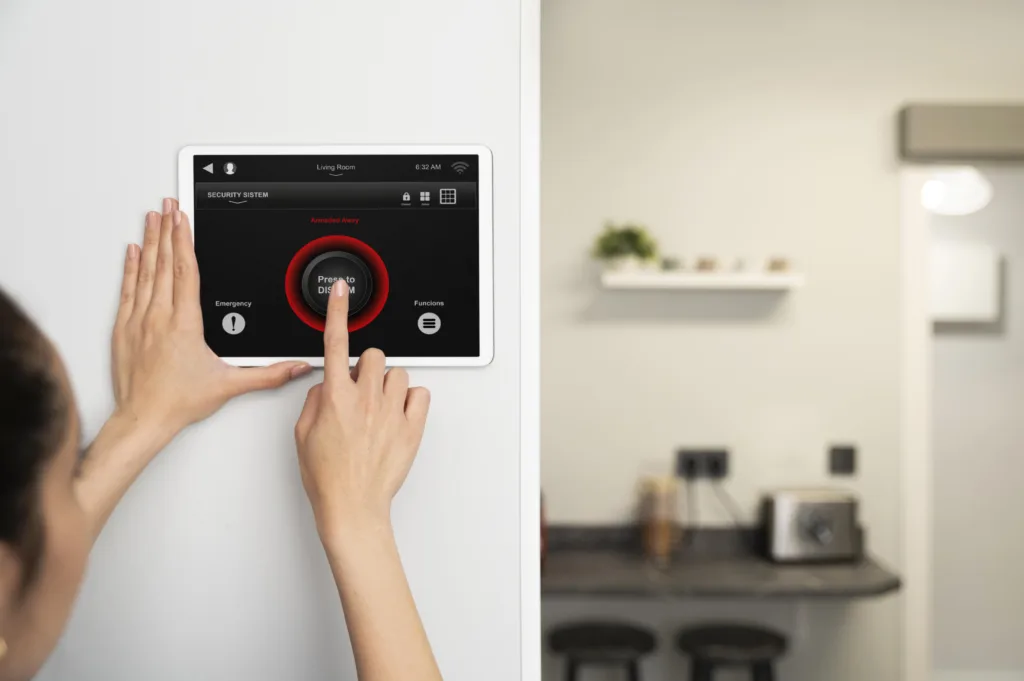Key Components Of Effective Houston Commercial Security Systems
In today’s dynamic business landscape, security is paramount. Protecting assets, employees, and sensitive information is a top priority for businesses of all sizes. To achieve comprehensive security, commercial establishments rely on sophisticated security systems tailored to their specific needs. These systems encompass a range of components designed to detect, deter, and respond to potential threats. In this article, we delve into the key components of effective Houston commercial security systems.

Surveillance Cameras
Surveillance cameras are the cornerstone of any commercial security system. These cameras provide real-time monitoring and recording of activities in and around the premises. High-definition cameras with advanced features such as night vision, motion detection, and pan-tilt-zoom capabilities offer enhanced surveillance capabilities. Additionally, the presence of visible cameras acts as a deterrent to potential intruders.
Intrusion Detection Systems (IDS)
Intrusion detection systems are designed to detect unauthorized entry into the premises. These systems utilize sensors placed on doors, windows, and other entry points to detect disturbances or breaches. When triggered, the IDS alerts security personnel or initiates an alarm, prompting immediate action.
Access Control Systems
Access control systems regulate entry to secure areas within the premises. These systems may include keycard readers, biometric scanners, or keypad entry systems. They allow businesses to restrict access to sensitive areas, track employee movements, and manage permissions effectively.
Alarm Systems

Alarm systems are crucial for alerting authorities and employees in the event of a security breach or emergency. These systems may include audible alarms, strobe lights, and silent alarms that notify security personnel discreetly. Integrating alarm systems with surveillance cameras and access control systems enhances the overall security posture of the premises.
Perimeter Security
Perimeter security measures are essential for preventing unauthorized access to the premises. These measures may involve physical barriers such as fences, gates, and bollards augmented by electronic security measures like motion sensors and perimeter alarms. Maintaining a secure perimeter is the first line of defense against intruders.
Security Monitoring And Response
Effective security systems incorporate 24/7 monitoring and rapid response capabilities. Professional monitoring services continuously monitor security cameras, alarms, and sensors for any signs of suspicious activity. Trained personnel can respond swiftly to alerts, dispatching security personnel or contacting law enforcement as necessary.
Integration And Automation
Integration of security system components enhances efficiency and effectiveness. Modern commercial security systems often feature integration with building management systems, allowing for centralized control and automation of security functions. Integration enables seamless communication between different components, streamlining operations and improving response times.
Backup Power And Redundancy
The reliable power supply is critical for ensuring the uninterrupted operation of security systems. Commercial security systems should incorporate backup power sources such as generators or uninterruptible power supplies (UPS) to prevent downtime during power outages. Redundancy measures, such as redundant servers and communication channels, further enhance system reliability.
Regular Maintenance And Upgrades

Maintenance and regular updates are essential for keeping commercial security systems effective and up-to-date. Routine inspections, testing, and software updates help identify and address vulnerabilities before they can be exploited. Additionally, periodic upgrades ensure that the security system remains aligned with evolving threats and technology advancements.
Fire Detection And Suppression
In addition to physical security threats, businesses must also be prepared to address fire emergencies. Fire detection systems, including smoke detectors, heat sensors, and flame detectors, are essential components of commercial security systems. These systems automatically detect signs of fire and trigger alarms to alert occupants and authorities. Integration with sprinkler systems and fire suppression systems further enhances fire safety measures.
Environmental Monitoring
Environmental monitoring components help businesses detect and mitigate risks related to temperature, humidity, and other environmental factors. Monitoring systems can alert personnel to conditions that may pose a threat to sensitive equipment, such as server rooms or storage facilities. Early detection of environmental anomalies allows for timely intervention and prevents potential damage or loss.
Cybersecurity Measures
In an increasingly digital world, cybersecurity is a critical aspect of commercial security. Businesses must protect their networks, systems, and data from cyber threats such as hacking, malware, and data breaches. Robust cybersecurity measures, including firewalls, antivirus software, intrusion detection systems (IDS), and employee training, are essential components of a comprehensive security strategy.
Conclusion
In conclusion, effective Houston commercial security systems comprise a range of interconnected components designed to safeguard businesses against various threats. By integrating surveillance cameras, intrusion detection systems, access control, alarm systems, perimeter security, monitoring, and automation, businesses can create a robust security infrastructure. Regular maintenance, upgrades, and adherence to best practices ensure that commercial security systems remain reliable and effective in protecting assets and personnel. Investing in a comprehensive security system is essential for safeguarding the continuity and prosperity of businesses in an increasingly complex security landscape.

